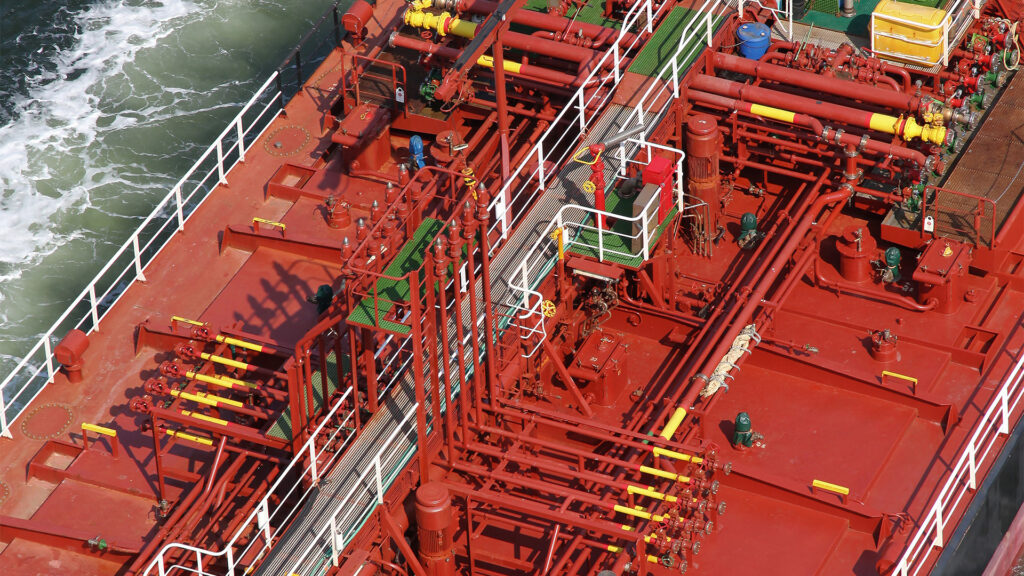Market volatility driving oil prices, November 2014
Crude oil prices have fallen to their lowest point in recent years due to weak demand and rising supply. Brent crude is in the mid-US$80s, which is roughly a 25% fall from US$115 in June 2014. Meanwhile, West Texas Intermediate (WTI) is hovering in the low-US$80s, having briefly dipped below the US$80 mark in mid-October 2014.
Views on where prices will go next are mixed. Some predict no significant rise in prices in the immediate future, whilst others in the sector have suggested that prices could sink lower over the coming months. Alternatively, some banks have forecast an end to the slump and a rebound by the end of the current quarter which will see Brent stabilising between US$90 and US$100 per barrel.
Given the volatile market conditions, there is a strong possibility that parties could increasingly start to default on their contracts as they begin to feel the effects of this sudden decline. In particular, this will be the case with buying parties dissatisfied by the disparity between the prices they are paying under long-term contracts and the prices they could achieve on the spot market.
Parties may start manufacturing spurious reasons not to perform their contractual obligations, or they may simply refuse to do so. Such market pressures commonly prompt an increase in the number of quality disputes which, in a more stable market, would be settled between the parties on commercial terms.
Parties may even claim that adverse market conditions constitute a force majeure event. This raises the question: will the dramatic decline in the value of crude oil allow parties to walk away from their contracts without incurring any liability?
Force majeure clauses – protection for parties hit by adverse economic conditions?
A force majeure clause is a mechanism whereby the parties to a contract may cancel or delay performance of their obligations upon the happening of an unforeseeable event beyond their control.
Such clauses are regularly cited by contracting parties in an attempt to escape their obligations when a contract does not materialise in the way they had hoped it would – in particular, if the market turns against them.
A party seeking to rely on a force majeure event must prove that it falls within the wording of the force majeure clause. In particular, the party must prove the following:
- The event falls within the clause and that the party has been hindered or delayed from performing the contract because of that event.
- The non-performance or delay was due to circumstances beyond the party’s control.
- The event was not reasonably foreseeable when the contract was made.
- There were no reasonable steps that the party could have taken to avoid or mitigate the consequences of the event.
Will unexpected or dramatic financial events like a steep decline in prices ever qualify as force majeure events under this framework?
The basic position is that they will not. It is well known that commodity markets fluctuate and that traders are taking a risk when they enter into long-term commodities contracts.
Despite this established position, in recent years the issue has come before the courts on several occasions.
The traditional approach – Thames Valley Power Ltd v Total Gas & Power Ltd1
In this case a sharp rise in gas prices made performance of the contract by Total completely uneconomic. Total informed Thames Valley Power that it would be unable to continue with the contract. It relied on the force majeure clause which released a party from its obligations if it was:
“by reason of force majeure rendered unable wholly or in part to carry out any of its obligations under this agreement”.
In other words, Total argued that the rise in gas prices was a force majeure event.
The Court dismissed this reasoning. It said that the increased gas price had simply rendered the contract onerous for Total, and that ‘onerous’ did not equate to ‘impossible’. Financial inconvenience could in no way allow Total to rely on the force majeure clause.
This position was confirmed in Tandrin Aviation Holdings Ltd v Aero Toy Store LLC2, where the Court said that even an event as catastrophic as the 2008 global financial crisis would not trigger the force majeure clause. The defaulting party said that the crisis came within the meaning of “any other cause beyond the Seller’s reasonable control” as expressed in the clause. The Court dismissed this and reiterated that force majeure will not apply just because a contract has become more onerous to perform. Even where the cause is an unexpected financial crisis, this will not amount to force majeure.
A departure from the rule? The case of Classic Maritime Inc v Lion Diversified Holdings Bhd3
In another case concerning the global financial crisis, the claimant sought summary judgment against the defendant. The defendant argued that the crisis had triggered the contract’s force majeure clause by causing a collapse in demand for iron ore, making performance of its contractual obligations impossible.
Rather than rejecting this outright, the Court said there was “some prospect” such a defence could succeed – and that for this reason it would not give summary judgment.
At first glance, this appears to depart from the rule in Thames Valley and Tandrin Aviation.
However, Classic Maritime emphatically did not reverse these decisions.
Regarding the force majeure defence, the Court simply said that it was sufficient to prevent summary judgment. In other words, the Court believed that as a defence it was stronger than one with “no real prospect of successfully defending the claim”. However, as ‘real prospect’ is merely defined as ‘not fanciful’ and ‘more than merely arguable’, it is clear that this did not amount to strong judicial support for the defendant’s argument. Indeed, the judge described the chances of it succeeding at trial as “improbable”.
Whilst this decision indicates that declarations of force majeure on the basis of financial events are not ipso facto invalid, it is evident that parties will find it extremely difficult to successfully characterise financial crises as force majeure events.
Price majeure
These issues arose when iron ore and coal prices dropped dramatically in 2012. Chinese buyers locked into long-term contracts began regularly defaulting, often at the last minute, and buying the goods at cheaper prices on the spot market. In response, sellers dumped their defaulted-on cargos in the spot market at heavy discounts, further depressing prices. In turn, this triggered a fresh round of Chinese defaults. This set in motion a downward spiral which continued to push down prices.
At the time, some traders referred to this as ‘price majeure’. Following the decline in crude prices, it is yet to be seen if this trend will emerge amongst buyers in China or elsewhere. However if it does, it is clear that as a matter of law traders will not be able to argue that the recent collapse in the price of crude will amount to a force majeure event.
Volatile markets – how parties can protect themselves against default
As these cases demonstrate, it is extremely unlikely that a sudden drop in commodity prices will be accepted by the English courts as falling under force majeure clauses.
Even if parties want to specifically name falling commodity prices as force majeure events, it is doubtful that the courts will allow this. Force majeure events must not be reasonably foreseeable, so the parties cannot specify any circumstances which they anticipate might arise during the contract.
If parties want to include in their contracts mechanisms which will protect them from large swings in prices, they could add the following types of clauses:
- Price margins.
- Hardship clauses.
- Exclusion clauses.
- Exchange rates/index-linking pricing.
By contrast, force majeure clauses should be left to operate solely in the case of unforeseen events.
Footnotes
- [2006] 1 Lloyd’s Rep. 441
- [2010] EWHC 40 (Comms)
- [2009] EWHC 1142 (Comm)
Download a PDF version of ‘Market volatility driving oil prices, November 2014’








